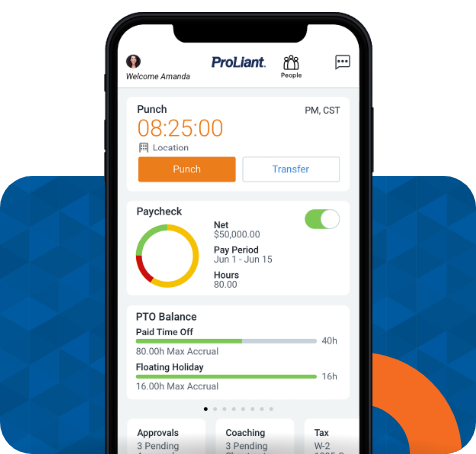As many of us moved to remote work during the pandemic, we discovered a lot of things about our motivations, our work ethic, and our coworkers. So many of us lost our minds during quarantine, setting up home offices in kitchens, spending the entire day with all-too-needy pets, incomplete chores nagging us in the periphery—all of the unique experiences we’ve faced have changed the way we look at work.
A lot of research has been conducted over the last year, and the results show that there are many benefits for employers who are willing to be flexible and adapt to changing times. Let’s take a look at five ways employers and employees are shifting their perspectives about work.
1. How we measure productivity
There seems to be a bit of controversy about whether working from home makes us more or less productive. Still, many companies have found ways to ensure productivity by realigning expectations and setting boundaries.
A recent article by Employee Benefit News (EBN) explains that people working from home do many things besides actual work, but it shouldn’t affect productivity as long as managers set goals and remote workers meet them. Marjorie Adams, founder and CEO of Fourlane who has been fully remote since 2009, states, “We learned early on to give people goals, and we have weekly metrics for each employee [...] If they hit their goals for the week, then I don’t care if they nap on the clock. The transparency and simplicity has worked well for our team.”
Research shows that remote work isn’t going anywhere. To continue offering this benefit to employees while maintaining productivity, business owners and managers will have to focus on flexibility and transparency.
2. How we set goals
Some managers turn to micromanaging tactics to ensure maximum productivity from remote workers, but this can have detrimental effects leading to burnout. In a recent article from EBN, Steve Cadigan (talent strategist and the first chief HR officer at Linkedin) explains, “Workers need to be measured by their results, not by the hours they work [...] If you think they can do more, then change their goals — it’s important to have a discussion about it rather than micromanaging the situation.”
Changing how we set goals for remote workers can be tricky, but taking measures to monitor them with constant check-ins and monitoring programs can be counterproductive and invasive. According to Alison Green from Slate, “Effectively managing people from afar means setting clear work goals and assessing people’s progress against those, not making them account for how they’ve spent each minute of their workday.” And if managers have employees who struggle with remote work, those employees can be worked with “individually to resolve whatever the issues are.”
3. How we avoid burnout
Many companies cannot avoid returning employees to work, but they have unique challenges to face as expectations and perspectives have changed. Employees have grown accustomed to remote work or certain benefits that were put in place to assist them through the pandemic. One of the challenges for employers returning to the office involves creating strategies to avoid burnout.
According to the Washington Post, “Employers across the country, from Fortune 500 companies such as PepsiCo and Verizon to boutique advertising firms and nonprofit organizations, are continuing pandemic benefits such as increased paid time off and child- or elder-care benefits as well as embracing flexible work schedules and remote work in recognition that a returning workforce is at high risk of burnout.”
Business owners and managers worldwide have been trying new things to help with work-life balance and avoiding burnout for their employees. For example, a recent article by the Washington Post highlighted results for large-scale trials of a four-day workweek in Iceland where they “were an ‘overwhelming success,’ with many workers shifting to shorter hours without affecting their productivity, and in some cases improving it, in what researchers called ‘groundbreaking evidence for the efficacy of working time reduction.’”
However your business chooses to adapt, it will be essential moving forward to examine the benefits offered to employees and to consider updating them to meet the demands of an evolving workforce.
4. How we communicate
One of the biggest challenges we face in this new age of remote work is developing relationships with coworkers and building a solid company culture. An article by Harvard Business Review suggests that this is a time to dive deep and think hard about how culture is constantly evolving and how it can be signaled without material things like office layout, beer carts, and ping pong tables.
Most businesses successfully maintained a sense of culture by bending and flexing to help their employees at the onset of the pandemic. Additionally, they prioritized figuring out ways to host events online and have people see each other and interact in ways that aren’t related to their work. Of course, we all know by now that too much Zoom can be bad for our health, but a few Zooms here and there to catch up and talk about ourselves can help build stronger relationships and company culture.
5. How we grow as employers and employees
According to research compiled by HR Drive, there was a huge demand for learning and development in 2020 as employees were required to fill more dynamic roles. In addition, everyone was required to learn new skills and change perspectives during the pandemic if they wanted to stay productive and continue being successful.
In the end, we all learned the importance of continuing education and professional development—the importance of being adaptable. By offering opportunities for learning and growth, employers demonstrate their willingness to adapt and a commitment to their employees.
Forging ahead into a new age of working from home
The pandemic has undoubtedly changed how we view our working environments. As we forge ahead, managers and employees will need to learn new skills for managing time and taking on new responsibilities, and companies will also have to adopt strategies to meet new demands. If you are willing to accept that the way we look at work is going to continue to change rapidly, then you’ll be prepared to face those changes as they come along.
Proliant can streamline your processes and help make managing your workforce a breeze with our Performance Management solutions. Contact us today to learn more.







No Comments Yet
Let us know what you think